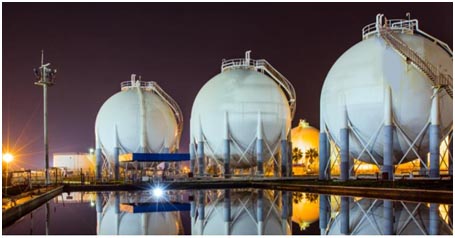LNG is produced worldwide at a low cost and burns cleaner than diesel fuel. LNG achieves lower NOx and particulate emission levels better than diesel fuel. The worldwide share of LNG trade has increased from 6% in 1970 to over 30% today

Accredited Certification
Earn professional certificates approved by the American Bureau of Shipping (ABS) and/or Nippon Kaiji Kyokai (ClassNK). Most countries accept Class-approved training certificate as equivalent for local endorsements. Check with your flag state for endorsement requirements.
This is an ABS-approved course. Candidates will earn an ABS-approved course completion certificate upon successful completion of this course.
Liquefied Natural Gas (LNG) is a clean and eco-friendly fuel. MARPOL’s Annex VI will require that the sulphur content of marine fuels be reduced to 0.5% by 2020. This will require vessels to use much more expensive low Sulphur fuel oils. A potential long term alternative solution is using LNG as a marine fuel. LNG contains no Sulphur and it’s combustion process produces very low NOx compared to all diesel fuels. Given the abundant availability of LNG in the market, ship owners and operators are looking to LNG fueled vessels as the long-term solution to reducing their carbon footprint and complying with MARPOL’s growing emission standards under Annex VI.
As existing vessels are converted over to LNG fueled vessels and new vessels are built as LNG fueled vessels, there will be a greater demand for on board engineers with the training and knowledge in operating engines using LNG as a fuel. Hence, qualified crew members are highly sought after and well-rewarded. LNG as a Fuel Program which comes with On-line Skills and Training Program that provides a solid knowledge base for those looking to enter the field.
LNGF Basics:
Conversion and Newbuilding for LNGF, Basics of LNG, Chemistry and Physics, Transportation and Behavior of LNG, Scrubbers for non-LNGF ships, LNGF Refresher Interactives
LNGF Bunkering:
Bunkering Facilities, LNG Bunkering Challenges Bunkering Options, Bunkering System Components, Emergency Shut Down System ESDS, Bunkering Operations, Safety of Bunkering Operation, LNG Bunkering Considerations, Custody Transfer
LNGF Containment and Ancillaries:
LNG Storage and Containment, Ancillary systems
LNGF Main Engine and Equipment / Control Systems:
LNGF Training, logistics and Commercial: Logistics and Commercial, Training Need
LNGF Health, Safety and Compliance:
Health Safety and Environment, Regulatory Compliance
Upon registration, courses are conveniently accessible online for candidates to participate at their own pace and on their own schedule.